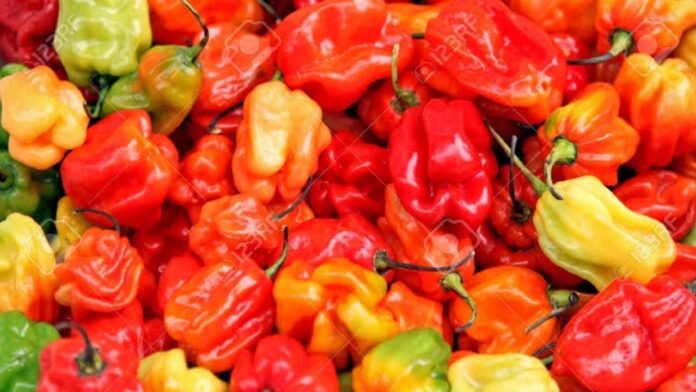The prices of fresh pepper in Africa’s most populous country surged to the highest on record as scarcity hits major food markets across the country.
The prices of a big bag of pepper popularly known as “Rodo” has surged by 400 per cent to an average of ₦150,000 from an average of ₦30,000 sold in the corresponding period of last year, according to a BusinessDay’s market survey.
The situation has left traders scrambling for fresh pepper and households struggling to prepare their dishes – as pepper is a crucial ingredient for most recipes in the country.
Farmers have attributed the scarcity to the outbreak of a pest infestation across pepper farms in major producing states.
“Pest has completely destroyed most pepper farms, and this is the major driver of the scarcity and surging prices we see in markets,” Abdullahi Ali, chairman of the All Farmers Association of Nigeria, Kano chapter, said in response to questions.
“We started noticing the pest infestation in February this year,” he added.
Kamal Mustapha, a pepper grower and vice president of the agriculture group in the Kano Chamber of Commerce, said the pest infestation is a setback to pepper production in the state and Nigeria.
He noted that the outbreak is also affecting greenhouse farms located in farming clusters in Kano State.
“Even though I operate a greenhouse farm, my pepper has been greatly affected by the pest outbreak,” he said.
Mustapha said the pest is unknown, as it is the first time farmers are experiencing such an outbreak on a large scale, noting that the state Ministry of Agriculture and the National Horticultural Research Institute, which is mandated for vegetables, have been contacted about the outbreak.
There is no official data on the country’s pepper production from the agricultural ministry or the United Nations food body, however, experts estimated production at 770,683 tons per annum.
Kano state accounts for the bulk of the country’s total production, followed by Kaduna, Jigawa, Plateau, Sokoto and Bauchi.
“There is scarcity of pepper as we speak and that is what is responsible for the price hike,” Yemisi Adegoroye, a trader of pepper at Mile 12 Market told BusinessDay.
“I travelled to Kano to buy pepper to supply my customers in Mile 12 Market, but couldn’t even get 10 bags to buy,” Adegoroye said.
According to her, a big bag of pepper is currently selling at ₦100,000 as against ₦15,000 it was sold in the same period last year.
“When we buy a bag at N100,000 and include transportation costs from Kano to Lagos and market charges with profit we should be selling it at least at N140,000 per bag,” she noted.
She added that some traders are currently going to neighbouring countries to see if they can import the fresh vegetable to augment the production shortfall, noting that the Naira/Cefa exchange rate will also make it more expensive.
A scientist at the Ministry of Agriculture who is not authorised to speak on the issue said the ministry is not aware of the outbreak as pepper is not listed among the focus crops the body pays attention to.
The National Horticultural Research Institute mandated for vegetables did not respond to several calls made by BusinessDay.



